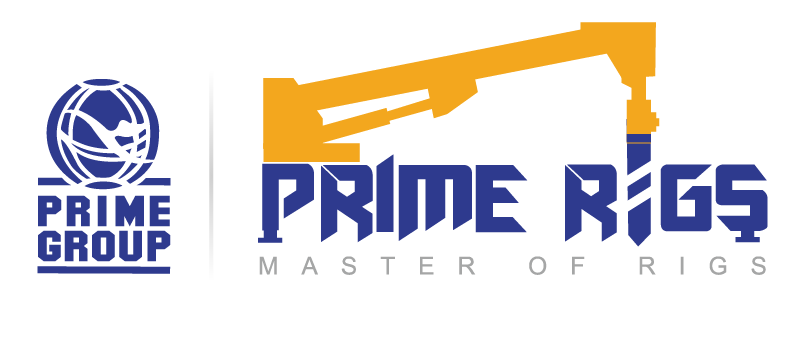
When operating portable well drilling equipment, precision, skill and keen attention to detail are required. Even experienced operators may undertake common mistakes that lead to significant losses of money, delays, and damage to equipment. The drilling operations will run smoothly and cost-effectively without compromising the quality of the equipment, provided you are familiar with these errors and how they can be avoided.
Inadequate Site Preparation and Ground Assessment
Most operators simply dig into the ground without adequately evaluating the access and soil conditions of the area. Without proper ground surveys all around, one might as well lose equipment, or strike unforeseen geological features that could break drill bits or just generally get the rig unstable. There should always be an evaluation of the soil type, seeking the presence of underground utilities and ensuring that there is sufficient space to allow movement of equipment.
Improper Drilling Fluid Management Practices
One of the most frequent operational mistakes is ignoring the uniformity and circulation rates of the drilling mud. Inappropriate fluid viscosity can result in hole collapse, while inadequate circulation can cause cuttings to build up and drill strings to become trapped. Throughout the well drilling rig in India process, keep an eye on fluid characteristics, maintain appropriate mixing ratios, and guarantee sufficient flow rates. Ineffective fluid management frequently leads to downhole equipment loss, expensive fishing operations, and perhaps hole abandonment.
Ignoring Equipment Maintenance Schedules Completely
Equipment failures in critical operations are always a by-product of not performing regular maintenance in the quest to save on time or costs. Regular checking of components, replacement of filters, and lubrication prevent the creation of small issues, which can evolve into large failures. Ensure comprehensive maintenance schedules and adhere to them in detail. Document all service activities to facilitate future reference. Failure to take care of equipment usually means expensive repairs, extended downtime periods, and even safety hazards that could have been prevented if its maintainers had undertaken a good maintenance process.
Operating Beyond Recommended Equipment Specifications
The abusive use of portable drilling rigs denies safe working conditions and leads to premature wearings. Drilling into improper formations, into a maximum depth rating or overworking hydraulic systems causes component failures and safety-related incidents. The instructions by the manufacturer should always be followed, and the appropriate equipment to be used on the specific geology should be chosen. Working on the limits often leads to the loss of the warranty, liability issues, and a drastic increase in operating costs, as one will have to repair it often.
Insufficient Operator Training and Safety Protocols
Various risks and inefficiencies exist where inexperienced workers are allowed to operate complex drilling tools without prior training to operate those sophisticated works. Non-professionals cannot recognize dangerous situations in time, and before they escalate, they read equipment data incorrectly and make wrong decisions in extreme conditions. Team members should be properly trained, and safety protocols need to be laid down. Lack of training often results in accidents, equipment damage and violations of the law that may halt business permanently.
Conclusion
Propitious preparation, proper training and meticulous workout will certainly aid in preventing typical problems in portable well drilling from Prime Rigs. Remember, taking shortcuts repeatedly will end up in far bigger problems and rarely save you money in the long run. Spend time getting ready, making sure your equipment is properly maintained and in working order and that all operators know about its limitations.
Recent Post
- Frequent Used: Heavy Construction Equipment and Instruments
- What Type of Water Drilling Should You Choose?
- How To Choose The Perfect Drilling Rig To Buy?
- Tips For Selecting the Right Drilling Rig According to Your Need
- Water Well Drilling: Numerous Advantages
- How To Find Affordable And Reliable Water Well Drilling Rigs For Sale?
- Everything You Need to Know About Water Construction Rigs
- Water Drilling Rigs: Know The Different Types
- Refurbished Borehole Drilling Machine: Is It Worth The Purchase?
- Safety for the Construction Industry: Why Does it Matter?
- Milling Or Drilling: Which Is The Right Process To Choose?
- Choosing A Construction Truck Rigs Supplier Keeping Perfection In Mind
- Factors That Can Help You Select The Best Water Well Drilling Rig
- What Makes Drilling Rigs Different From Milling Rigs?
- Water Well Drilling Rig: All You Need to Know About It
- Do’s and Don’ts of Choosing the Right Rigs
- Underground Drilling Rigs: Features That Make Them Unique And Most Recommended
- What are construction drilling rigs? Why do companies need them?
- How do drilling companies help you with core drilling exploration?
- Best Portable Drilling Machines for Construction & Agriculture
- Best Mining Rigs for Hard Rock Drilling in 2026
- Mining Rig Cost vs Performance: How to Choose the Right Machine
- Future of Construction Equipment: 10 Technology Trends Shaping 2026
- How to Compare Drilling Machine Manufacturers Before Buying





